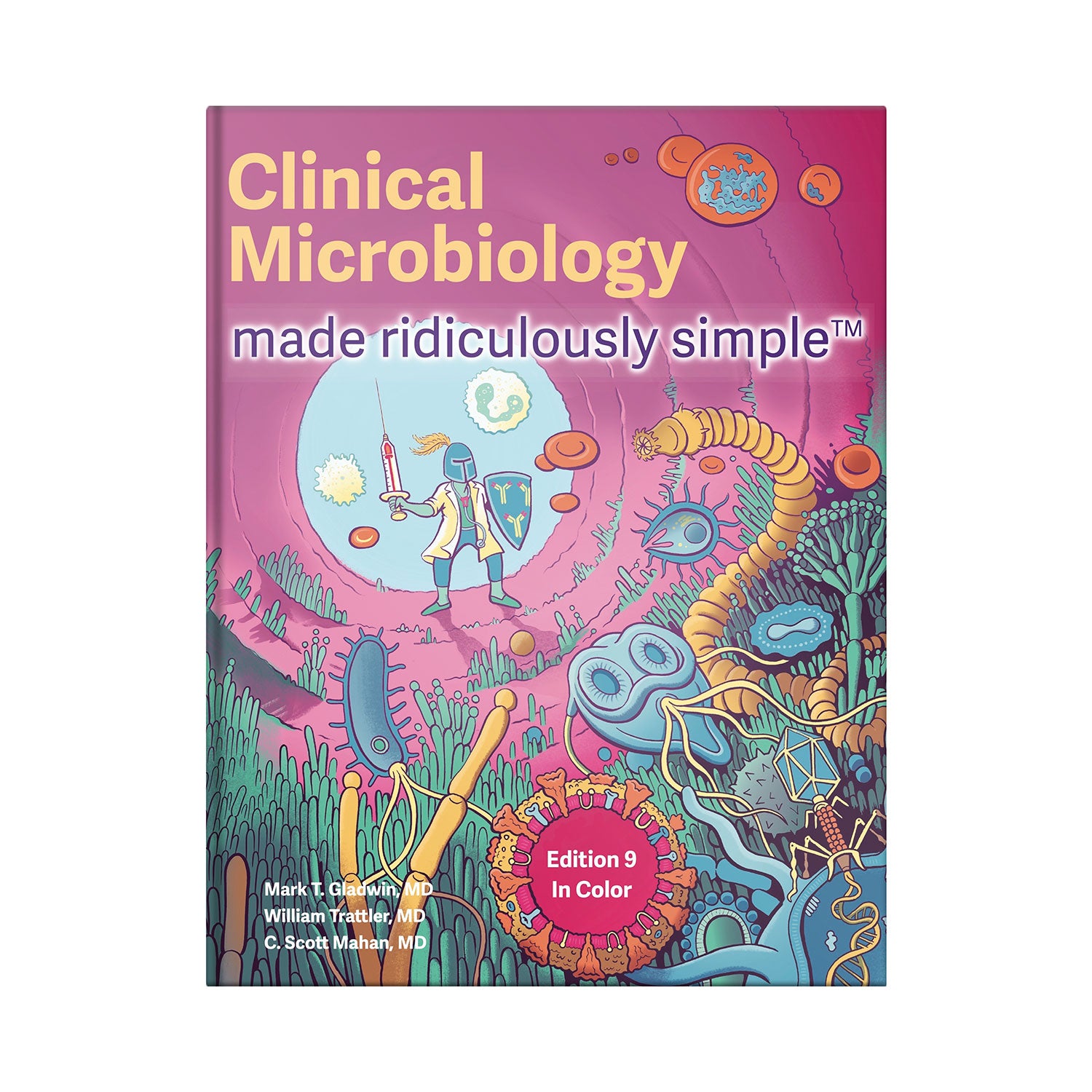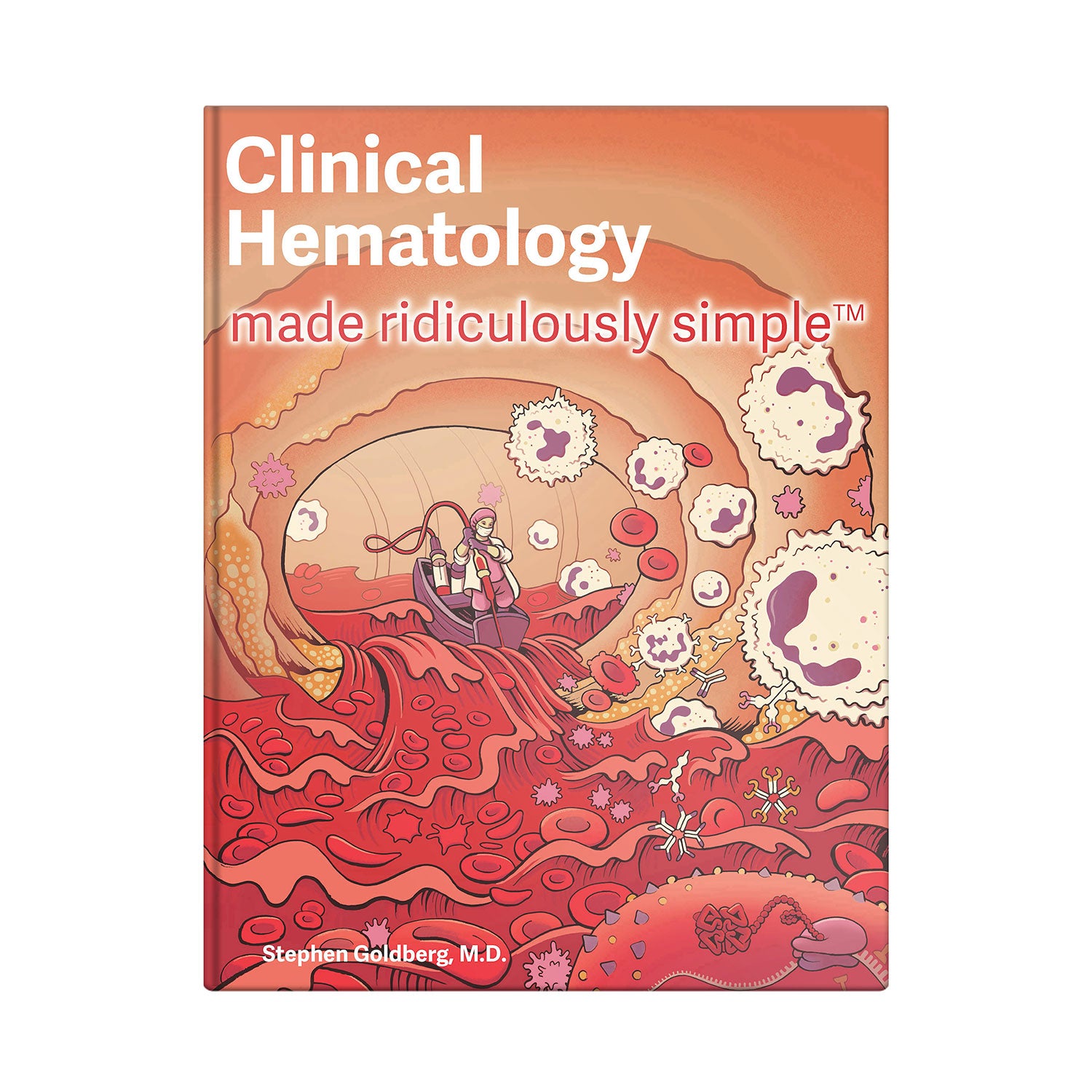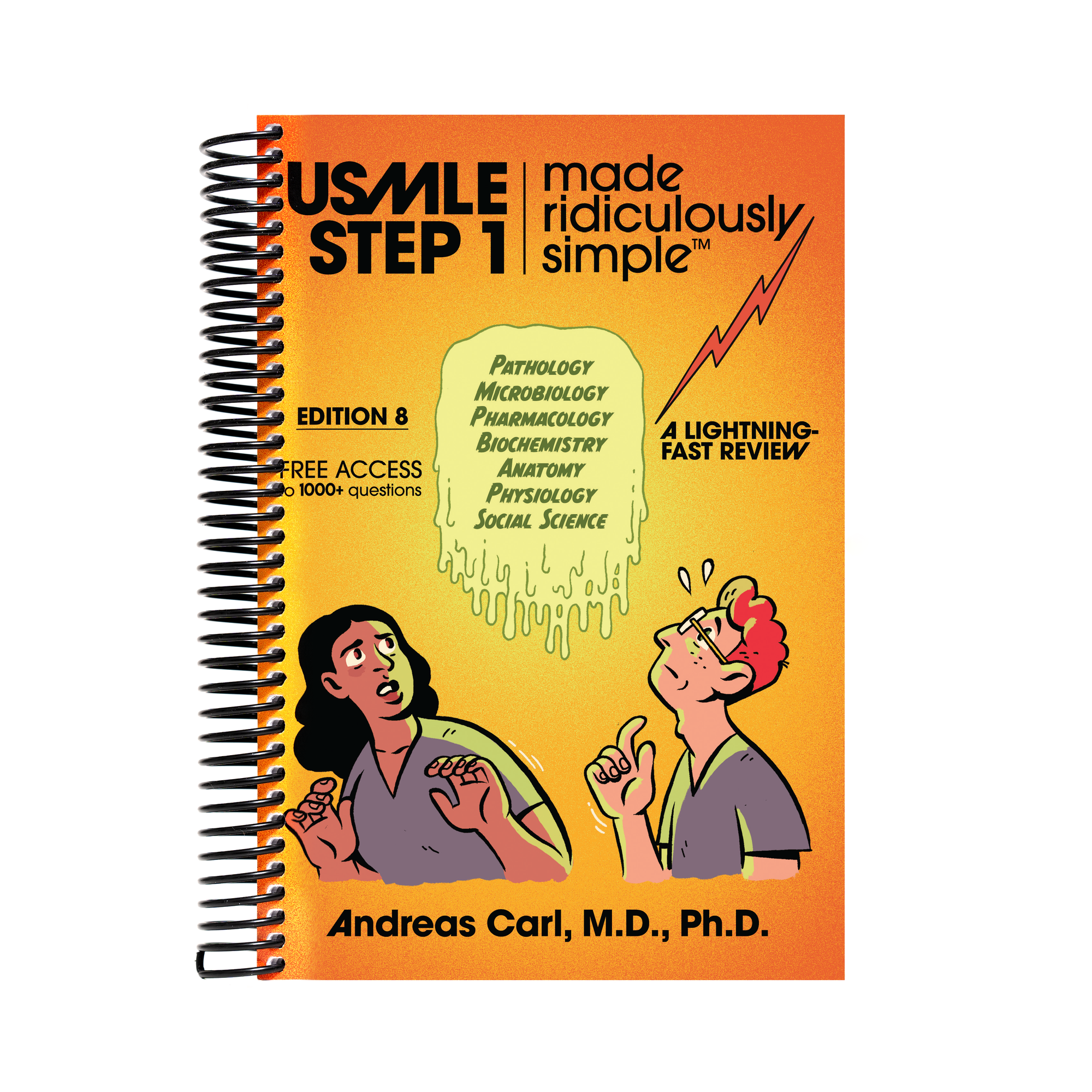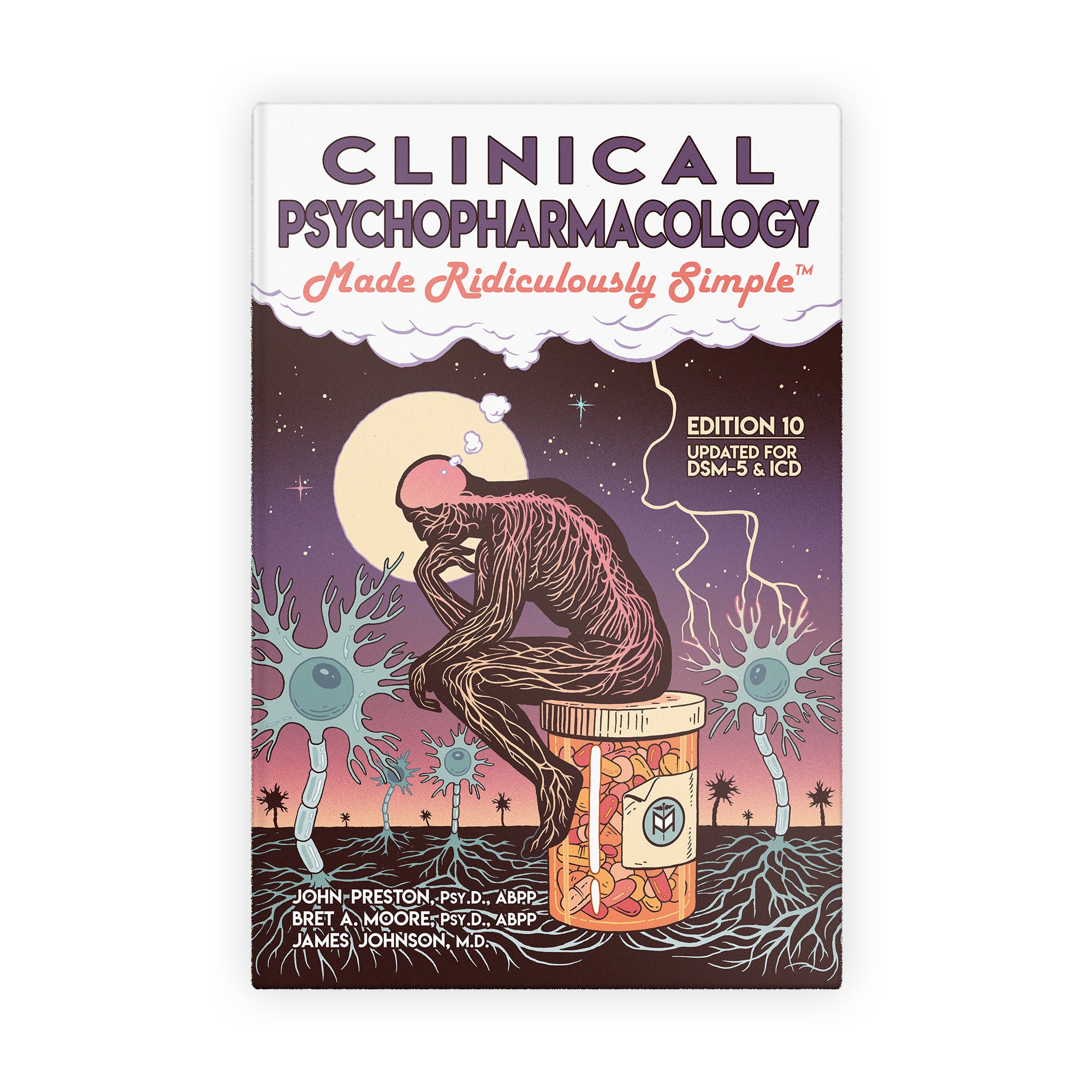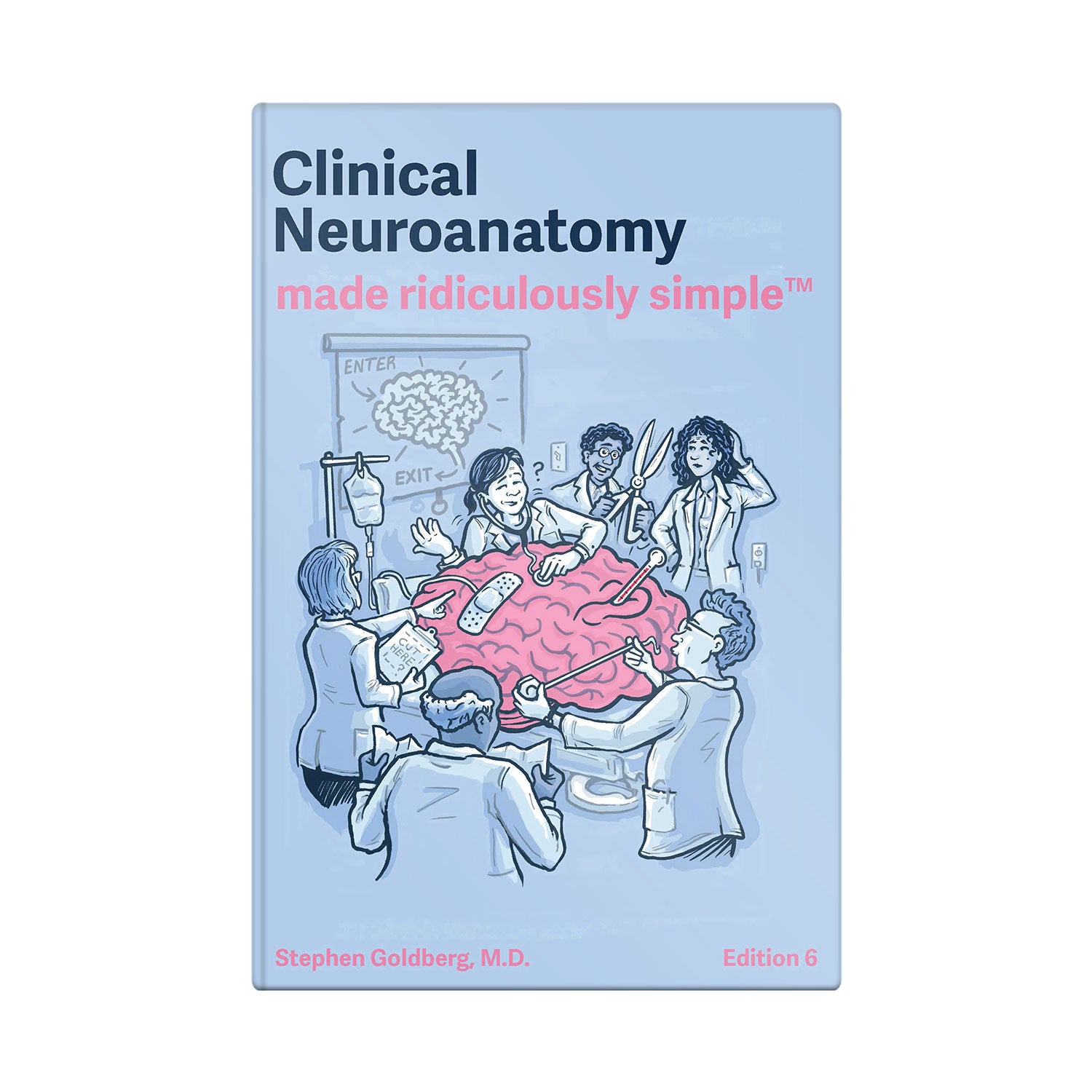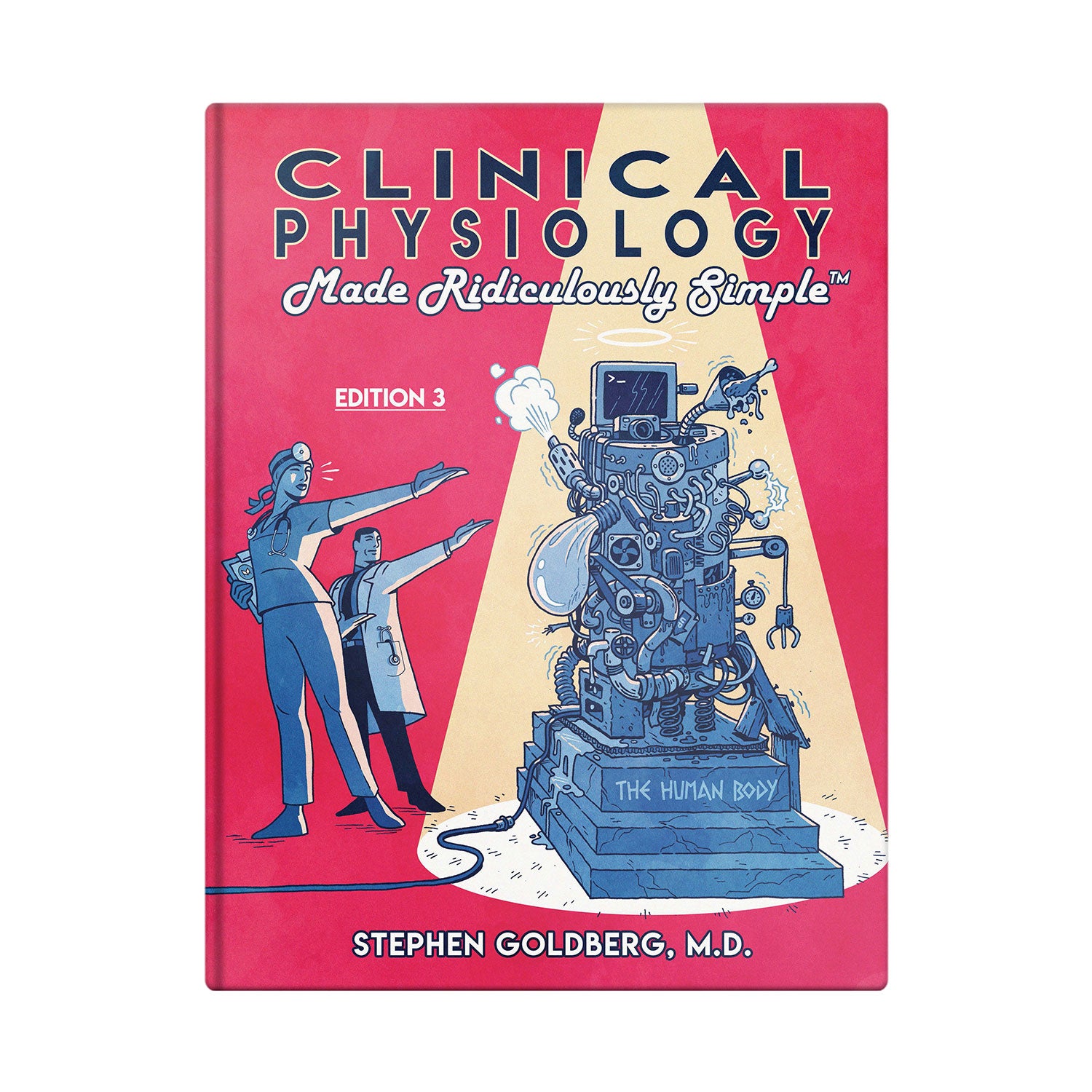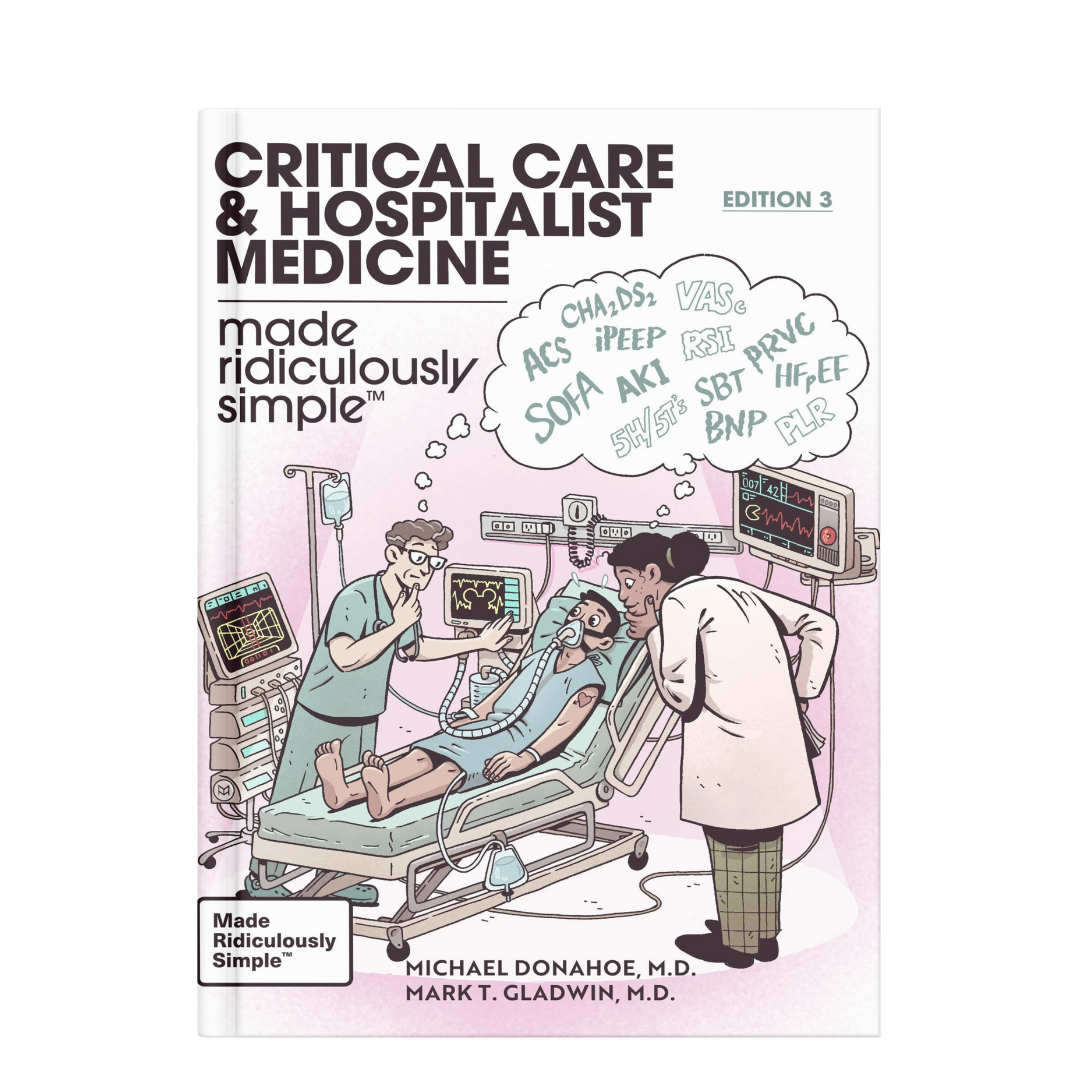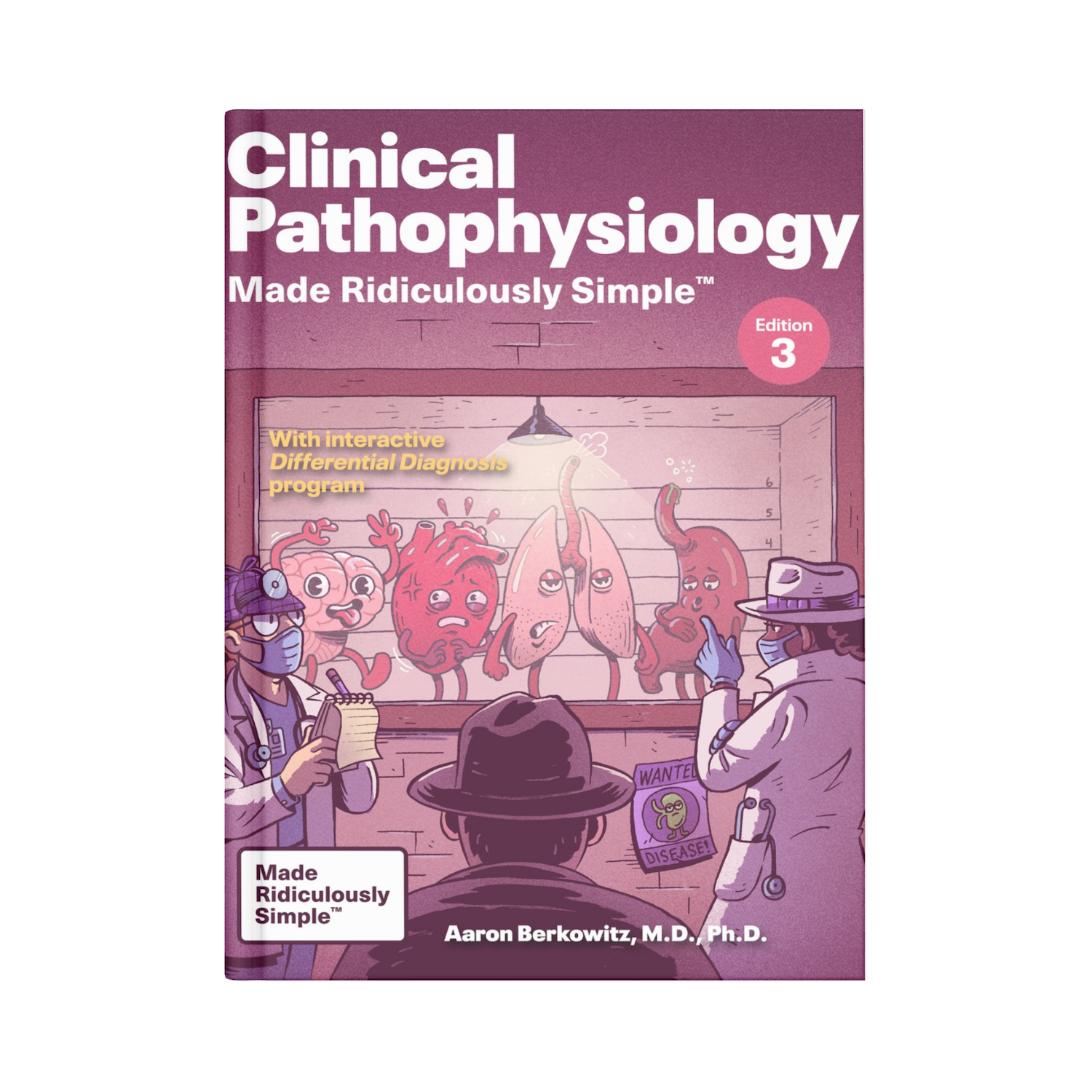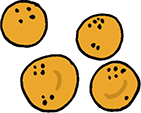
The Best Ebook Readers And Reading Apps For Med Students
If you want to read using an ebook, which is the best tablet to purchase, and which ebookstores and reading apps should you use?
Previous posts discussed the pros and cons of print books versus ebooks. This post discusses the pros and cons of the various eReading devices and eReading apps. Which tablet (or computer) should you use to read ebooks? Which reading apps?
Choosing the best way to read ebooks can be confusing. There are many different reading tablets. Some ereading apps work with some tablets and not others. There is also the growing ability to read books directly from the web, whether from a tablet or a computer.
Einstein's X-ray (from Med'Toons, by S. Goldberg, Medmaster
While it may seem obvious that publishing companies should simply list all their books on every eBookstore (e.g. Amazon, Barnes & Noble, etc.), it is not that simple. The particular ebookstore's terms to a publisher may differ depending on the size of the publisher and the price of the book. Thus, a publisher may opt to place certain titles in only certain ebookstores. Also, some books do not presently lend themselves well to ebook format.
Buying print books is relatively simple: buy them any place; no need to distinguish between reading tablets, apps or booksellers. For ebooks, though,with time-consuming usernames, passwords, and wrestling with computers, mobile devices, and reading apps, it is a wonder that a medical student can get any reading done at all. Time is at a premium for medical students, and we need the most efficient ways to read.
I still prefer print books. But others prefer ebooks for their ease of acquisition, portability, searchability, hyperlinking and multimedia capability, and generally less cost than print books. If you want to read using an ebook, which is the best tablet to purchase, and which ebookstores and reading apps should you use? I have summarized my current understanding of the matter in the chart below, along with some general observations that follow.
- Of all the tablets, only the iPad supports reader apps from the all the various ebookstores (iBooks, Nook, Kindle, etc.). I suspect that is because Apple, although having its own ebookstore, is mainly interested in selling iPads and wants its readers to know that with a single iPad they can read any ebookstore’s books. On the other hand, Nook (Barnes & Noble) and Kindle (Amazon) are mainly bookstores, and are more resistant to having other eBookstore apps on their tablets. Thus, their tablets do not support the broad range of reading apps as the iPad.
It is interesting that while the iPad has its own iBookstore, you cannot read iBookstore books on a Macintosh computer (!), or for that matter on any other tablet or computer. So if you want to read books from Apple's iBookstore, you presently need an iPad. - Medical students’ needs differ from that of the general public in that medical students, in addition to studying a lot, commonly want to highlight, and to a lesser degree take notes when reading. I found highlighting more awkward on the Nook tablet than on iPad, Kindle, or Android. While the Nook tablet otherwise has excellent reading features, its somewhat awkward highlighting and lack of support for reading apps other than its own is a drawback.
While the Nook app for Windows Vista works well, it appears the Nook for Windows 8 does not presently have a highlighting or notes feature. I found Nook for Macintosh buggy in that sometimes its menu does not appear when the application is opened. - In contrast to tablets, it seems easier and quicker to highlight using a computer, whether Mac or Windows, using a mouse or trackpad. The availability of relatively large monitors for Mac or Windows computers makes them easier to study from than the smaller monitors of mobile devices. And the external keyboards of Mac and Windows computers make typing, as for notes and other functions, quicker than on a tablet.
- There is an increasing ability to read books on the web. Kindle, in addition to its reading app for computers and tablets, also allows reading directly from the web via its Kindle Cloud Reader, which makes it easier for the student to log in anywhere, even without a tablet or a computer that has the Kindle app. Kindle Cloud Reader has good highlighting and note-taking ability. Google Play, Inkling and Vitalsource (VS) also have tablet readers as well as web-reading functionality with good highlighting and note-taking. Nook for web allows direct reading from the web, but at this time it does not appear to support highlighting or note-taking. Of course, the drawback of relying on the web to read is that the web may be down, or you may be out of range of wi-fi.
- In addition to the specific ebookstores, such as Apple’s iBooks, Barnes & Noble’s Nook, and Amazon’s Kindle, there are also many independent bookstores that have their own reading apps (help!), or whose books readers can access with what I will call “generic” readers. Two of the best generics are Adobe Digital Editions (ADE, especially the latest edition), for Mac and Windows computers, and BlueFire (BF) for tablets, both of which can read ePub and PDF files.
There is now a Windows 8 Surface Pro tablet, which, unlike the Windows Surface RT tablet, has the full range of Windows 8 function, just like a regular Windows 8 computer. It, however, is thicker and heavier than most tablets and does not presently have a large screen. It also does not support the full range of reading apps as the iPad.
The bottom line:
I suggest that the student, where possible, use a computer (Mac or Windows) for ereading because of the easier ability to highlight, the larger monitors, and the greater ease in typing on an external computer keyboard. But if you want to use a tablet, the iPad offers the greatest range of ebookstores to choose from, good highlighting and note taking features, and an intuitive interface.
[Update Jan 16, 2014: Apple now has an iBook app for Macintosh computers, which appears to run very well. However, at this time it is not available for Windows or other tablets except iPad. One would have to purchase books from the iBooks bookstore. It seems to me that the wave of the future, for those who prefer eBooks to print books, will involve reading off the Internet. In that way, books will be accessible to everyone who has Internet access, not requiring a specific reader or computer.]
The field of ebooks is changing rapidly and these opinions may change as well. What do you think?
The Goldberg Files
The Goldberg Files is based on the struggles of Dr. Goldberg as well as those of his many students which he observed while teaching medical school for 25 years. This extensive blog is dedicated to assisting students in dealing with the stresses of medical education. Want to learn more?

![Einstein's-x-ray-[Converted]](http://medmasterbooks.files.wordpress.com/2013/02/einsteins-x-ray-converted.jpg)

